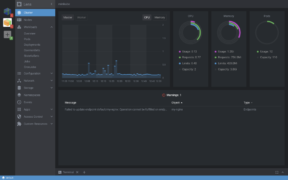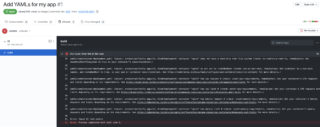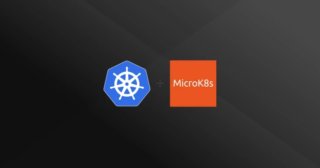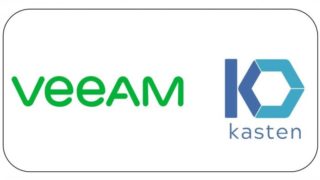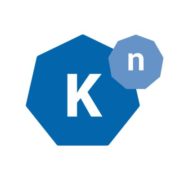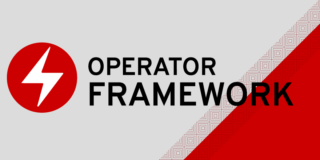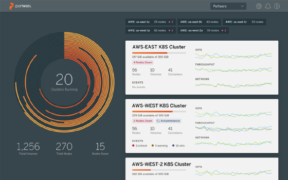Topic: kubernetes
Mirantis Lens adds extension API to integrate with any Kubernetes component, toolkit or service
The open cloud company behind the popular Lens Kubernetes IDE project, Mirantis, announced a new Extensions API that enables the rapid development of extensions for seamless integration with any Kubernetes-integrated component, toolkit, or service. “The Extension API and Extensions made in collaboration with many popular CNCF projects, opens up the world to Kubernetes developers greatly … continue reading
ITOps Times Open-Source Project of the Week: KubeLinter
StackRox has released a new open-source static analysis tool for identifying misconfigurations in Kubernetes deployments. KubeLinter checks YAML files and Helm charts and validates whether they have been configured using security best practices. StackRox recently conducted a study that found human error as a top cause for Kubernetes security incidents, with misconfigurations contributing to 67% … continue reading
Canonical’s MicroK8s now support high availability clustering
Canonical has announced MicroK8s now supports autonomous high availability (HA) clustering. This gives production workloads in cloud and server deployments more resilience. According to Canonical, high availability is achieved once three or more nodes are clusters and the data store migrates automatically between nodes. Canonical hopes that the increased resilience of HA MicroK8s will benefit … continue reading
ITOps Times Open-Source Project of the Week: Shipa Deployment Engine
Shipa recently open-sourced its deployment engine, which was originally designed to help developers deploy and manage cloud-native applications across multiple environments. The company said it will work with the Cloud Native Computing Foundation (CNCF) as the deployment engine’s roadmap evolves in the future. Shipa’s application-centric deployment engine bridges the gap between continuous integration tools and … continue reading
Rancher 2.5 enables GitOps at scale
The latest release of Rancher is now available. Rancher 2.5 introduces a new installation experience, GitOps at scale for edge clusters, full life cycle management of EKS cluster, and a new security hardened Kubernetes distribution for government customers. “Exploding on-premise, public cloud and edge Kubernetes use cases are creating massive container sprawl,” said Sheng Liang, … continue reading
Veeam acquires Kubernetes backup and disaster recovery company Kasten
The backup solution provider for cloud data management has announced it is acquiring Kasten for approximately $150 million. Kasten is a provider of Kubernetes backup and disaster recovery solutions. Veeam hopes the acquisition will help strengthen its data protection services, and help businesses with future-ready architectures. The news comes after Veeam and Kasten’s recent partnership … continue reading
VMworld 2020: Cloud Disaster Recovery, Tanzu updates, Project Monterey, and more
VMware announced a range of solutions and services to help its customers build, run, manage, connect, and protect applications anywhere. These include new projects, acquisitions, and solutions were unveiled at VMWorld 2020. VMware aims to deliver unified platform for a modern, multi-cloud world In addition to providing wider support for running VMware applications on the … continue reading
ITOps Times Open-Source Project of the Week: Knative
Knative is an open-source Kubernetes-based platform for building, deploying and managing modern serverless workloads. It is designed for developer productivity and handles the complex details of deploying and managing cloud-native services. According to the team, the project is focused on API with higher level abstractions; stands up secure and stateless services in seconds; provides loosely … continue reading
ITOps Times Open-Source Project of the Week: Operator Framework
This week’s featured open-source project is a toolkit designed to manage Kubernetes native applications in an automated and scalable way. The Operator Framework was first introduced in 2018 by CoreOS who saw a high barrier to entry for building Kubernetes applications. More recently, the Cloud Native Computing Foundation announced the Operator Framework was joining as … continue reading
Pure Storage is acquiring Portworx to create Kubernetes data services platform
Pure Storage’s acquisition of Portworx for $370 million in cash will create a Kubernetes data services platform for cloud-native applications. Portworx is a platform that provides persistent storage, high availability, data protection, data security, and cloud mobility for containers deployed in hybrid cloud architectures. “By combining Portworx container data services with Pure’s industry-leading data platforms … continue reading
SentinelOne announces Automated Application Control Engine to secure cloud and containerized workloads
SentinelOne has released a new automated application control engine that is designed to secure cloud and containerized workloads without human intervention. The automated engine eliminates the need to manually maintain allow-lists, which preserves cloud and container workload’s immutable states while also defending against malware, cryptojacking, and zero-day threats. “It is critical to defend cloud and … continue reading
Kubernetes 1.19 is now available
The latest release of Kubernetes is now available. Kubernetes 1.19 is the second Kubernetes release of the year. According to the team, the gap between Kubernetes 1.18 and 1.19 was the largest of any two Kubernetes releases, at 20 weeks. “The 1.19 release was quite different from a regular release due to COVID-19, George Floyd … continue reading

